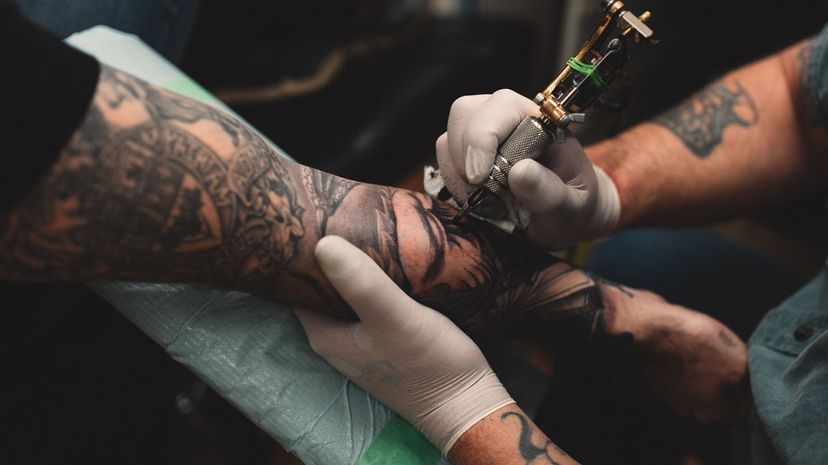
About This Quiz
The practice of tattooing is likely as old as humankind. Tattoos have been found on the bodies of Egyptian mummies, for example. Given the age of this practice, it's not surprising that tattoos have come to mean a variety of different things. Historically, they can represent rank or status in the member of a tribe, or a specific role in a clan (e.g., shaman). Some peoples created tattoos to memorialize their dead, and other early cultures believed that tattoos provided protection from evil. Later, tattoos came to symbolize belonging: to a specific Army unit, for example, or criminal gang. Perhaps most recent is the secular, Western view ... that tattoos are simply a good way to express individual personality.
The practice of tattooing, though, comes with baggage. In many parts of the world, including America, they have long been associated with blue-collar status, lack of education, antisocial behavior and even crime. To be fair, this is because tattoos were first adopted in the West by working-class sailors, then by bikers. However, as early as the 1920s, Winston Churchill's American mother, Jennie Jerome, had a tattoo of a snake around her wrist. Daring!
Tattoos carry some risk, as well. You might know that you should seek out a clean shop and an artist who is currently on his or her bloodborne-pathogen certification. But what many people don't realize is that tattoo ink itself is far less regulated, with inks being found to contain heavy metals and even carcinogens!
Despite the drawbacks, tattooing is never going to die out, so why not be educated about this fascinating human art? We've got a quiz to help you sort out the truth from the misconceptions - and unlike actually getting tattooed, there's no aftercare!
Advertisement
Advertisement
Advertisement
Advertisement
Advertisement
Advertisement
Advertisement
Advertisement
Advertisement
Advertisement
Advertisement